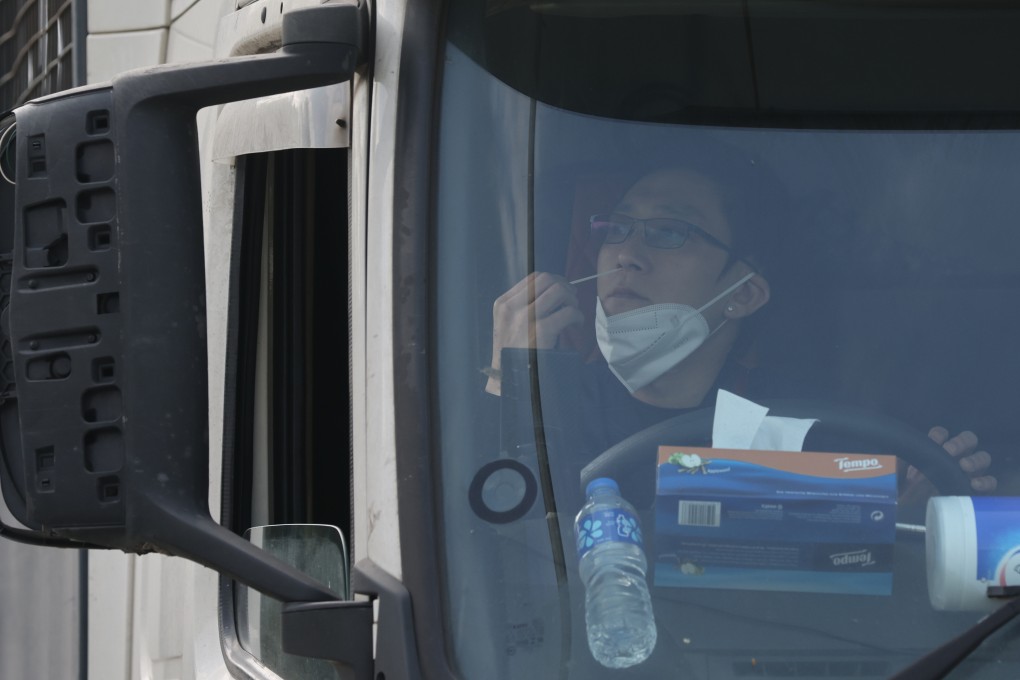‘Life is unbearable’: Hong Kong cross-border truck drivers endure mainland China’s tightened pandemic restrictions as Omicron infections surge
- Some already confined to hotels, drivers say new rules forbid them from leaving trucks while working
- More than two years of restrictions force some to quit, others say they miss their families

After enduring strict Covid-19 measures that kept him from seeing his wife and friends for more than two years, cross-border Hong Kong truck driver Liu Kun-ming has made the painful decision to shut down his transport company.
“I want to get out as soon as possible,” said the 53-year-old who has been transporting goods from mainland China to Hong Kong for more than two decades. “It’s hopeless and there’s nothing much I can do.”
Liu said he could no longer stomach the “inhumane” measures imposed by mainland officials on cross-border drivers, with the recent outbreak of the Omicron variant making conditions worse for many truckers.
So far this month, 87 out of an estimated 300 drivers have tested positive. Many other truckers deemed to be their close contacts were placed under compulsory quarantine in Shenzhen.
As mainland authorities tightened social-distancing requirements for all drivers, Liu decided the time had come to quit.
Despite Liu and his mainland wife having a home in Shenzhen, he has been confined since the pandemic began in early 2020 to a designated hotel for drivers provided by authorities across the border and subject to strict rules while at work.